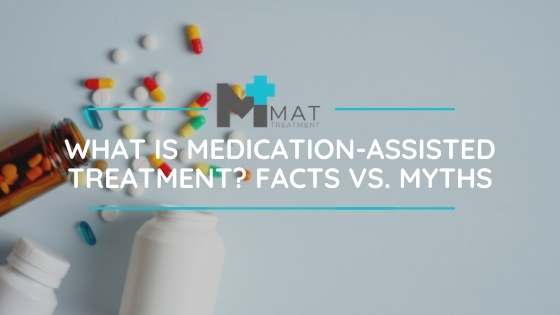Table of Contents
Substance use disorders have an estimated relapse rate of between 40% and 60%.
Although they can make normal life seem impossible, substance use disorders are treatable. But the type of treatment an individual undergoes will have a direct impact on their success.
Medication-assisted treatment is a safe and evidence-based approach to treatment that demonstrates potential. This type of treatment is especially helpful for withdrawal associated with opioid addictions. That’s because they make the process of getting and staying sober more comfortable.
If you or someone you love is struggling with a substance use disorder, find out if medication-assisted treatment is right for them. Keep reading to learn more.
Table of Contents
What Is Drug Rehabilitation?
Drug rehabilitation or drug addiction treatment comes in many different forms. But all share the same intention. That is, help individuals struggling with substance abuse and addiction overcome these behaviors.
Treatment can last for various amounts of time and take place in a variety of settings. Individuals choose from inpatient programs and outpatient programs. These last anywhere from 30 to 90 days and may also involve 12-step meetings, such as Alcoholics Anonymous.
In most cases, treatment involves a combination of therapies. These include behavioral therapy, group therapy, and individual counseling.
For some individuals, medication-assisted treatment is part of that broader treatment program. It’s intended to complement and support the work of other therapies.
What Is Medication-Assisted Treatment?
Medication-assisted treatment is also known as MAT. It includes any pharmacological intervention in the treatment of a substance use disorder. It’s always part of a larger treatment program that includes counseling and therapy.
Below, we cover all the most important questions about medication-assisted treatment. Read on to learn what addictions it treats, how it works, and medication-assisted treatment pros and cons.
What Addictions Can Be Treated With Medication-Assisted Treatment?
We’re all well aware of some of the most popular medication-assisted treatments. These are treatments for nicotine addiction and are available over the counter.
Nicotine preparations come in the form of nasal spray, gum, and patches. Nicotine medications include the likes of varenicline and bupropion.
But medication-assisted treatment is more often talked about in terms of more severe addictions. Specifically, MAT helps with treating alcohol and opioid dependence.
Medication-assisted treatment for alcohol uses pharmaceuticals like disulfiram, acamprosate, and naltrexone. But, in the context of the opioid crisis, the most popular medication treatments are those that treat opioid addiction. These are methadone, buprenorphine, and naltrexone.
How Does Medication-Assisted Treatment Work?
The compulsive use of addictive substances can change the chemistry of the brain. Addictive substances have an impact on the pleasure and reward parts of our brain. In the long term, this results in the inability to feel pleasure or satisfaction without the use of the substance.
Some of the medications used in medication-assisted treatment work by normalizing brain chemistry. Others can stop the euphoric effects that opioids and alcohol cause. Others work by reducing cravings.
What Are the Benefits of Medication Assisted Treatment?
There are many benefits of medication-assisted treatment. These benefits are in the detox period to the early days of sobriety and beyond.
1. Make Detox More Comfortable
Detox is the first step in receiving treatment for substance abuse. Drug detox is especially uncomfortable for some people. That includes people addicted to alcohol, opioids, and prescription medications.
Indeed, depending on the type of drug and the amount a person takes, detox can actually be dangerous. The symptoms of detox include heart rate changes, nausea, vomiting, vertigo, chills, and more. Medications ease these symptoms and make detox more manageable for the patient. But they can also help relieve the risks involved with detox.
2. Control Cravings
After detox, individuals will likely experience cravings. These cravings can be very intense and are often the cause for relapse in early recovery. This is because the person hasn’t yet learned the skills needed to overcome cravings. They are aware that taking the drug in question will ease the craving and discomfort.
There are medications that can help control cravings from early recovery and onward. With reduced cravings, individuals can focus more attention on their recovery.
3. Evidence-Based Treatment
Research shows that these medications give individuals the best chance at long-term recovery. That’s especially true for those with opioid addiction. Research also shows that these medications:
- Increase treatment retention rates
- Increase an individual’s ability to get and maintain employment
- Decrease illicit opiate use
- Decrease criminal activity
- Decrease the risk of contracting HIV or hepatitis C
- Improve patient survival
Plus, these medications are safe to use. They’ve been approved by the FDA for their use in the treatment of substance use disorders.
The Importance of Working With Professionals
People receiving medication as part of their treatment need to be working with a medical professional. For one, these professionals are aware of drug interactions between prescribed medications.
For example, naltrexone is dangerous for people with liver damage. Acamprosate should not be used by people with kidney problems.
Medication-assisted treatment for people with opioid addiction is also regulated under federal law. Specifically, federal law 42.CFR 8.12.
That law says that medication-assisted treatment for alcohol and other substances must be part of a treatment program. The person should also be receiving counseling. They should also have medical, educational, vocational, and other assessment and treatment services.
Only a professional facility is capable of providing that kind of whole-patient care. And, because medication-assisted treatment is only as successful as the broader program of which it’s apart, finding the right facility is paramount.
Looking for Help With an Addiction?
Medication-assisted treatment involves the use of pharmaceutical medications. Always part of a broader treatment program medication-assisted treatment has a lot of promise. That’s especially true for individuals addicted to opioids and alcohol.
If you or someone you love is struggling with a drug addiction, we can help. Contact us today to have all your questions answered.
Get Help Today
Don’t go through the process of recovery alone. There are people who can help you with the struggle you’re facing. Get in touch with one today.



